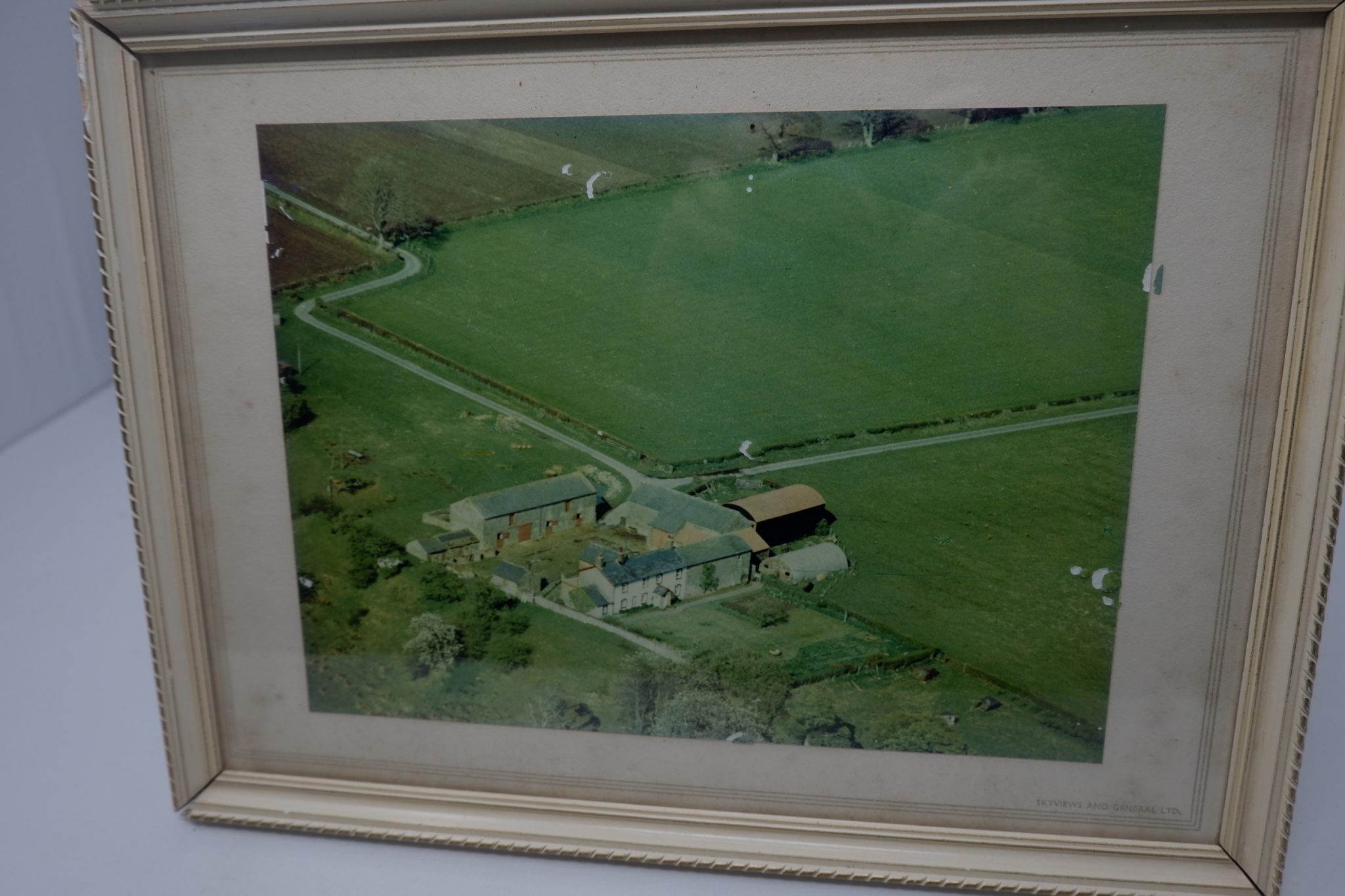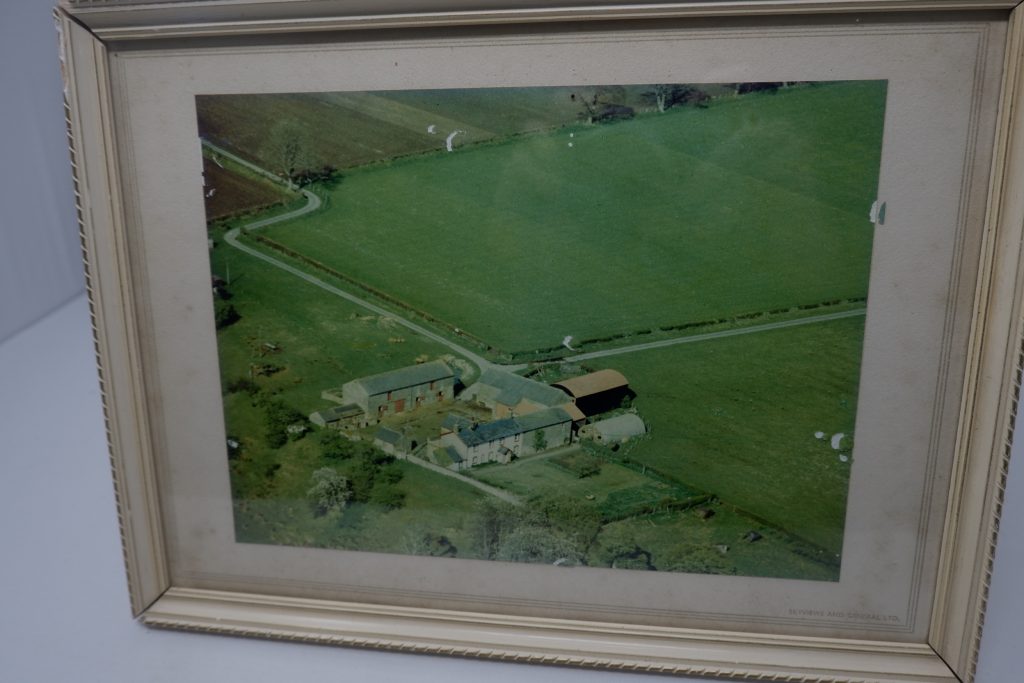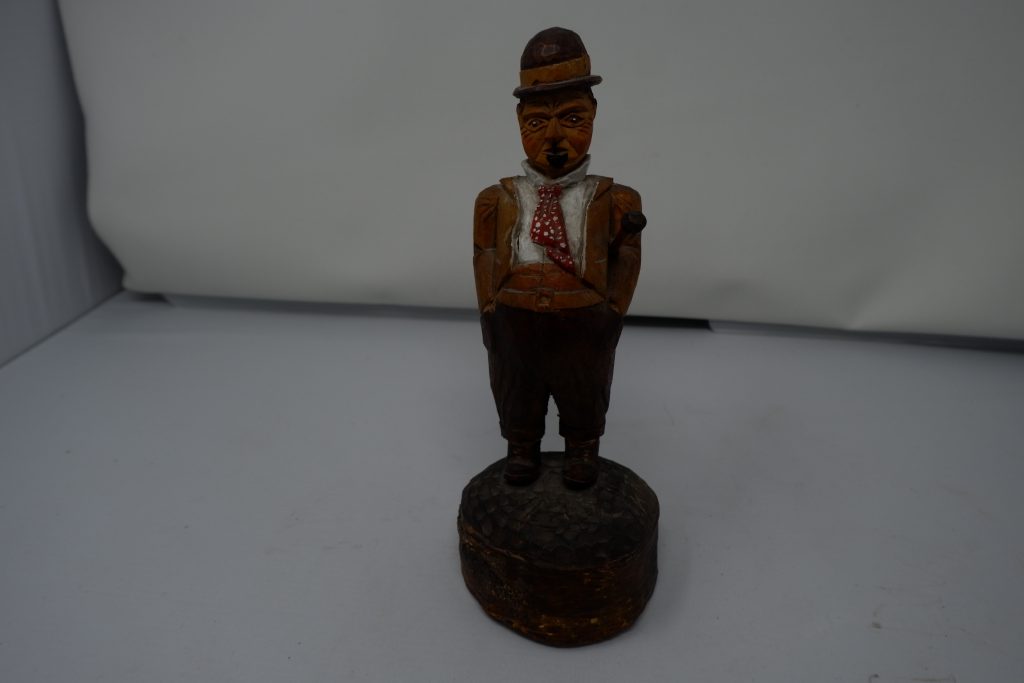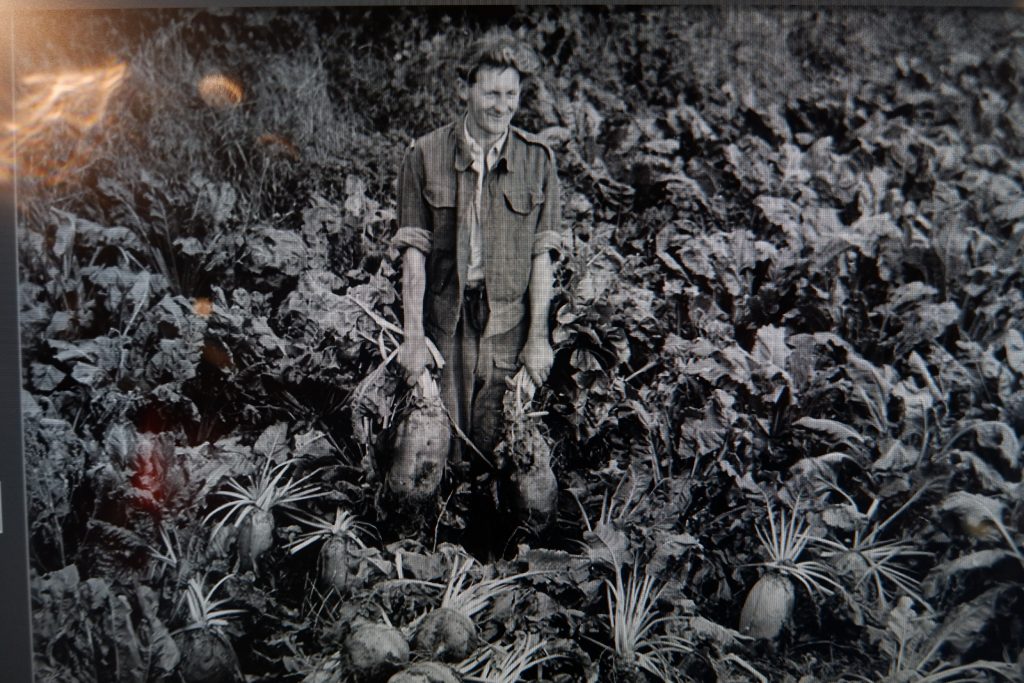
Our objects for this months are focusing on POWs (Prisoners of War) in this area during the Second World War. The treatment of prisoners during WW2 is a very deep topic as the experiences of these people can vary widely depending on country, nationality, location and even on a individual bases.

This photo on display here shows Jenkinstown Solport, Longtown which was used to houses POW mostly Italian ones. This kind of housing was not unusual for Italian prisoners especially after Italy surrendered and its later defection to the Allied side in late 1943 as there was a need for labour to support the Land Army in growing crops. The Italians were very interesting people and the Devils Porridge has records from many people who remember them. Many farmed the land but some did get involved in garden work as one Robert Jonhstone is reported to have had Italians gardening turnips when the war ended (they took it well apparently). After Italy’s position in WW2 changed many Italians were granted more freedom, which around this area apparently allowed them obtain bikes and attend the local cinema on very many occasion, though it was briefly interrupted by nails placed on the road by local boys. The trips might also have helped their English as despite having a generally warm relationship with many locals some recall struggling to teach them English especially when it came to playing games.
This new freedom clearly came with some free time as the wooden sculpture also on display shows, it is supposed to be Charlie Chaplin, maybe Oliver Hardy or mock of Churchill up to you.

The German POWs were met with a larger degree of reservation for self-evident reasons. Despite this it should be noted that Britian’s treatment of them was later considered to be within the bounds of the Geneva Convention, meaning they were provided with food and clothing though often of a inferior quality as war shortages worsened. Medical and dental care was also allowed by Germans who had the skills to provide it. The freedom of the German POW however depended on the colour code, a system which was designed to discover the seriousness of the person political views, most obviously their views on Fascism, those who held the strongest views were given less freedoms while other with lesser views would be seperated and attempts would be made to re-educate them on democracy. This even included real footage of liberated concentration camps which had a huge effect on some POWs. The presence of the Germans in society was not overly unpleasant but needless to say that some people did resent or felt uncomfortable in their presence, especially those with military experience. Despite this some did integrate well, one very impressive case was Fred Sichert a former paratrooper who was captured during the Normandy campaign and was brought to Longtown to work on farms, he would become living proof of the ability to turn POWs as during his time Fred would not only be trusted to deliver milk to the various locations but would also permanently relocate to Cumbria after the war.


